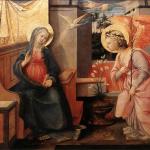I’ve known a few interfaith families who have done this. But what about Christian families who want to connect to Jesus and his Jewish faith in a deeper way? Here’s one perspective, from writer Rebecca Cynamon-Murphy:
Christians may desire to become more Christ-like or to develop deeper understanding of Christian roots, but hosting a Jewish Passover outside of the context of Jewish relationships does more harm than good. Christians celebrating their own Passover do unwitting harm to the Jewish people because they ignore centuries of persecution of Jews—and they do harm to themselves by ignoring their real-life Jewish neighbors, treating them as relics rather than people.
3,500 years of persecution, much of it by Christians, is not negated by the relative freedom from discrimination that Jews in America have experienced in recent decades. The horrific fear that so many Jewish people have felt cannot be understated. From Easter traditions that involved hunting down Jews to pogroms to ghettos to the Spanish Inquisition to the Holocaust, history is rife with this violent legacy.
Christians mounting their own reading of the Haggadah almost always want to discuss how Jesus is like the paschal lamb, using the occasion to show how all the Hebrew scriptures point to Jesus as fulfilling the prophecies. This theological exercise, known as supersessionism, is problematic enough in a purely Christian context, but as part of a Jewish ritual it is deeply out of place.
Spinning the “Old Testament” this way reduces the prophecies, the ambiguities that Jewish scholars have debated for centuries in the Talmud and in yeshivas, the morals derived from stories of flawed protagonists and, in fact, the entire narrative arc of the Jewish people as simply a preamble to the main act. Because Jewish people do not believe this interpretation of their holy texts and given the atrocities committed by members of our own faith because of this difference in belief, it’s like adding salt to the wounds of history for a Christian family to take one of the most sacred Jewish celebrations and twist it to reflect our own beliefs.
Photo: Wikipedia















